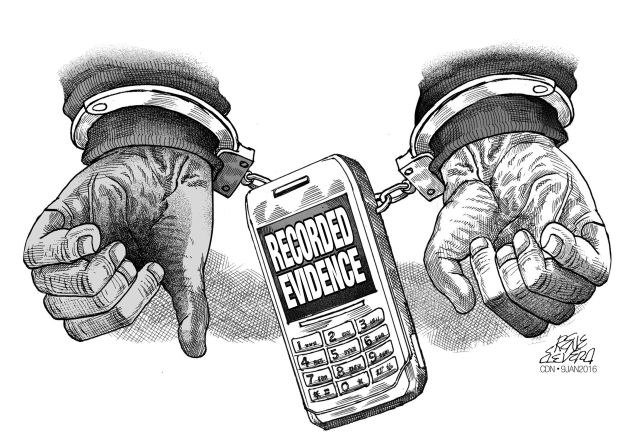
A cell phone video of a taxi driver cursing his passenger recently went viral on Facebook, reminding us of a similar incident involving a call center agent in Cebu City who was harassed by a taxi driver in February last year.
In Cebu City, taxi driver Joel Ramos got furious with call center agent Dave Say Horca after Horca took photos of the taxi following Ramos’ refusal to give the P10 fare discount.
The incident drew the ire of netizens across the country. The Land Transportation Franchising and Regulatory Board (LTFRB) got wind of the case and required both to attend a hearing, but
Horca eventually got tired and decided not to pursue the complaint as it ate up his work schedule.
Ramos got another job and told reporters that his days as a taxi driver were over after the incident.
The latest taxi driver to draw public outrage for his abusive behavior toward passengers was Roger Catipay, who was recorded shouting invectives at his passenger after she paid him P200 instead of the P250 he asked for her trip to the Philippine Overseas Employment Administration (POEA) office.
After paying him P200 for a metered rate of P140, Catipay refused to give change and instead insulted and threatened to harm her if she doesn’t get out of her taxi.
When her video went viral on Facebook, Catipay showed up at the LTFRB office with his employer, AFG Taxi operator Ariel Gamboa and refused to undergo a drug test saying that he wanted a lawyer first before agreeing to take the procedure.
His refusal triggers suspicions that he must be using drugs and the video which showed him speaking in angry, yet slurred words further fuels that perception. At any rate, the LTFRB set the hearing for him and his boss on Jan. 12.
The LTFRB regional office’s failure to pursue and put closure on the Horca-Ramos case along with this latest case of taxi driver abuse sends the wrong signal to the riding public who also have to deal with the abuses committed by passenger jeepney drivers.
We wonder whether the LTFRB and the Land Transportation Office (LTO) have been rigorous in their monitoring of public utility vehicle (PUV) drivers as far as drug tests are concerned.
The incident, while providing impetus to passengers to record their experiences with the abusive behavior of drivers, also comes at a risk to their personal safety in the event the driver retaliates with violence.
These devices and online media are useful tools in deterring errant behavior as seen in the case of a radio blocktimer who was caught insulting a traffic aide at the South Road Properties (SRP) two years ago.
Though public vigilance is essential in reporting these abusive drivers, the operators and the transport agencies should also do their part in eliminating this blight to public transportation.